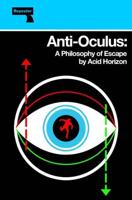Publisher's Synopsis
George Berkeley (1685-1753), also known as Bishop Berkeley, was an influential Irish philosopher whose primary philosophical achievement was the advancement of a theory he called "immaterialism" (later referred to as "subjective idealism" by others). This theory, summed up in his dictum, "Esse est percipi" ("To be is to be perceived"), contends that individuals can only directly know sensations and ideas of objects, not abstractions such as "matter." His most widely-read works are: A Treatise Concerning the Principles of Human Knowledge (1710) and Three Dialogues Between Hylas and Philonous (1713) wherein characters Philonous and Hylas represent Berkeley himself and his contemporary Locke. In 1734 he published The Analyst, a critique of the foundations of calculus, which was influential in the development of mathematics.









